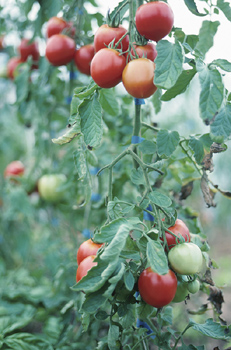Start Your First Vegetable Garden

Having a vegetable garden of your own is definitely a great option. It is the beginning of April now and you may be wondering if you can start your garden now and how to go about taking on this task. If you haven’t done gardening in the past or you would like to know how to do it more successfully, here are some tips and ideas that can help you out.
First of all, you need to realize that there are many different climate zones out there. Not every climate is going to be the same. However, in many climates, mid March is a great time to begin some of the cold weather crops, which can include radishes, salad greens, and even peas. You can also start some of your other plants, such as tomatoes inside.
April happens to be a great time to plan the cold weather crops as well. Many other crops other than the ones we mentioned can also be planted at this time, such as early carrots, onions, and early new potatoes. This is a great time to find wild dandelion greens to make salads with.
Once May comes along, everything becomes easier. The temperature gets warmer, the soil temperature is rising, and it is a great time to plant about anything. Now you can plant those warm weather crops from seeds, such as summer squash and beans. Any plants you started indoors, such as eggplants, peppers, and tomatoes can be moved to an outdoor garden during this time as well.
Maybe you are looking for crops that are easy for you to grow, since it is your first vegetable garden. Some great easy crops you may want to try out include zucchini squash, peas, rutabaga, peas, and onions. They can be planted fairly early too. Peppers and tomatoes are fairly easy to grow too. Just ensure you start them inside before you take them outside to plant.
One important thing to remember is to avoid the itch to plant to early. Many people make the mistake of planting tender crops, such as watermelon, squash, beans, and tomatoes too early. It gets warm for a bit and then you get a frost a couple weeks later, wiping out your small plants. Instead of following the weather, look at the dates of the last expected frosts. This way you won’t plant too early and end up losing all that hard work.
If you only have space for a small garden, you’ll want to be careful what you plant. Watch out for some of the plants that take up a lot of space, such as squashes, corn, and pumpkins. Look for items that won’t take up so much room. If you do go with corn, always put it on the north side so it won’t shade all the other plants. There are some bush varieties of these plants to consider as well that won’t take up all your garden space.



